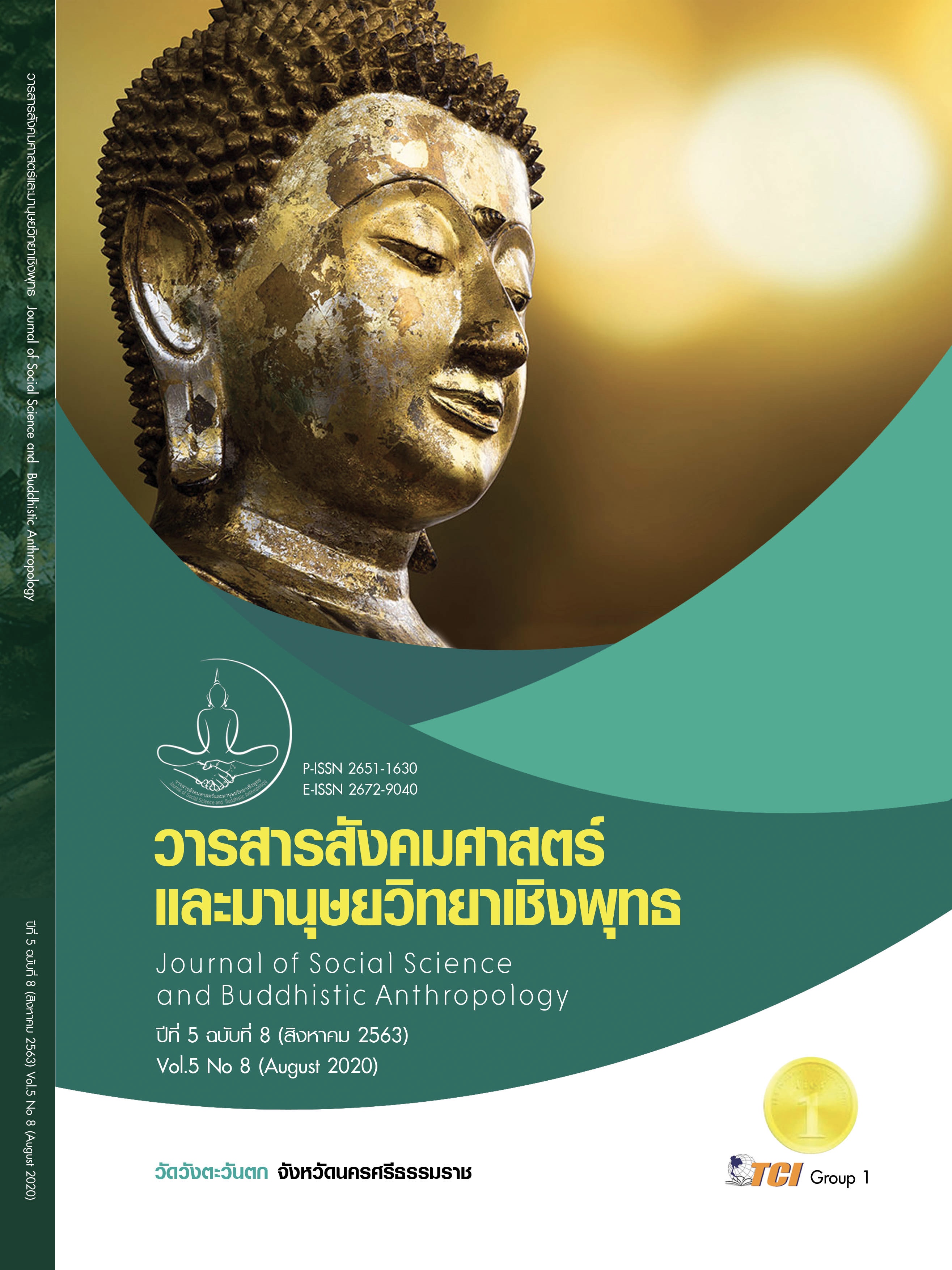DEMOCRACY DYNAMICS OF THE THAI POLITICAL TRANSITION UNDER THE COUP OF 2014
Keywords:
Dynamics, Democracy, Politics, CoupAbstract
From the situation of political conflicts that occurred during the period of 2013 - 2014 of Thailand, resulting in the military conducting a coup on 22 May 2014 by the National Council for Peace and Order (NCPO) by General Prayut Chan-ocha is the leader of the group and served as prime minister. Regarded as military political intervention despite the military being one of the oldest social organizations It arises from the necessity of communities that want to protect the lives and property of community members. It can be seen that the role of the military in Thai society has been important for a long time. The head of the NCPO announced to be a politician after having been rejected 9 times, and continued to organize a cabinet meeting to meet with politicians, owners of the same area Since mid-2017, amid criticism from political parties and academics, it was the construction of a sounding paved the way for the election until General Prayut Chan-ocha had announced the election date that will take place on February 24, 2019 The first government claimed the royal tradition from the postponement of the previous four elections often citing political events and legal technical reasons. Until officially announced again on March 24, 2019, which is the day that destined Thai politics under democracy With the King as Head of State.
However, the expectations of the people from the election, importantly the need to solve the problems of the mouth and the debt of the people. Politicians who sacrifice for the people are morally enforcing laws with equality, not discriminate. Higher agricultural crop prices. Distribute opportunities for everyone to access equal and equal quality education.
References
คณะรักษาความสงบสุขแห่งชาติ. (2557). ประกาศคณะรักษาความสงบสุขแห่งชาติ เรื่อง การควบคุมอำนาจการปกครองประเทศ. เรียกใช้เมื่อ 7 มีคมคม 2562 จาก http://www. law.moi.go.th/pdf/notice1.pdf
โจนาธาน เฮด. (2560). รัฐธรรมนูญใหม่ กับ ความไม่แน่นอนใหม่. เรียกใช้เมื่อ 7 มีนาคม 2562 จาก https://www.bbc.com/thai/thailand-39538186
ดนัย ไชยโยธา. (2548). การเมืองและการปกครองของไทย. กรุงเทพมหานคร: สำนักพิมพ์ โอเดียนสโตร์.
เดโช สวนานนท์. (2537). พจนานุกรมศัพท์การเมือง. กรุงเทพมหานคร: สำนักพิมพ์หน้าต่างสู่โลกกว้าง.
ทวีศักดิ์ ตั้งปฐมวงศ์. (2555). การเปลี่ยนแปลงการปกครอง 2475: การปฏิวัติที่ถูกนิยามใหม่. วารสารมหาวิทยาลัยมหาสารคาม, 31(3), 35-49.
ธานินทร์ กรัยวิเชียร. (2520). ระบบประชาธิปไตย. กรุงเทพมหานคร: โรงพิมพ์คุรุสภา.
นิด้าโพล. (2562). ความคาดหวังของประชาชนหลังการเลือกตั้ง 2562. เรียกใช้เมื่อ 2 มีนาคม 2562 จาก http://nidapoll.nida.ac.th/index.php?op=pollsdetail&id=636
บวรศักดิ์ อุวรรณโณ. (2554). พลวัตของการเมืองไทย. วารสารสถาบันวัฒนธรรมและศิลปะมหาวิทยาลัยศรีนครินทรวิโรฒ, 12(2),19-20.
บีบีซี. (2561). 4 ปีรัฐประหาร. เรียกใช้เมื่อ 2 มีนาคม 2562 จาก https://www.bbc.com/ thai/resources/idt-sh/thai_junta
บีบีซี. (2561). วันเลือกตั้ง: รัฐบาล-กกต. ยืนยันกำหนดเดิม 24 ก.พ. 2562. เรียกใช้เมื่อ 2 มีนาคม 2562 จาก https://www.bbc.com/thai/thailand-45493498
ประภาพร สีหา. (2560). ความขัดแย้งทางการเมืองกับรัฐประหารปี พ.ศ. 2557. วารสารรัฐศาสตร์ปริทรรศน์ มหาวิทยาลัยเกษตรศาสตร์, 4(2), 145 -166.
พิชาย รัตนดิลก ณ ภูเก็ต. (2561). ยุทธศาสตร์การเมืองของคณะรัฐประหารที่ควรปรับเปลี่ยน. เรียกใช้เมื่อ 7 มีนาคม 2562 จาก https://mgronline.com/daily/detail/ 9610000008117
วิกิพีเดีย สารานุกรมเสรี. (2557). รัฐประหารในประเทศไทย พ.ศ. 2557. เรียกใช้เมื่อ 20 มีนาคม 2562 จาก https://th.wikipedia.org/wiki/
วิชัย ตันศิริ. (2548). วิวัฒนาการของระบอบประชาธิปไตย. กรุงเทพมหานคร: สำนักพิมพ์แห่งจุฬาลงกรณ์มหาวิทยาลัย.
วิสุทธิ์ โพธิแท่น. (2524). ประชาธิปไตย : แนวความคิดและตัวแบบประเทศประชาธิปไตย. กรุงเทพมหานคร: มหาวิทยาลัยธรรมศาสตร์.
ไอลอว์. (2561). รวมข้อมูลการเลือกตั้ง 2562. เรียกใช้เมื่อ 7 มีนาคม 2562 จาก https://ilaw.or.th/2019election
Copeland, L. & Lamm, L. (1985). The World’s Great Speeches. (2nded.). New York: Dover.









